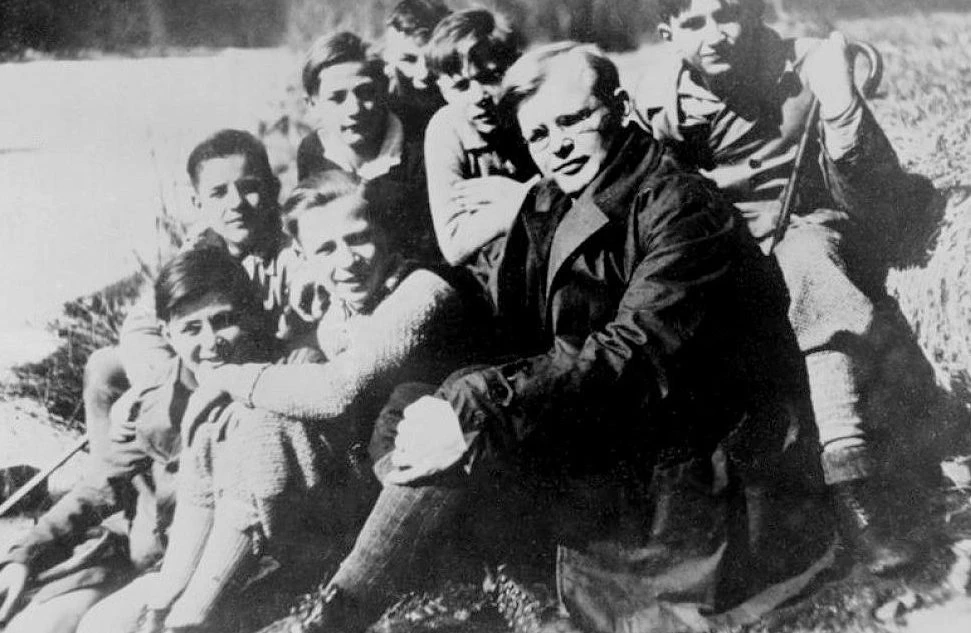And behold, a lawyer stood up to put him to the test, saying, “Teacher, what shall I do to inherit eternal life?” Luke 10:25
Dietrich Bonhoeffer, a pastor and theologian, became infamous in the mid-20th century for attempting to assassinate Adolf Hitler during World War II. Some in Christian circles argued that he should not have done so but instead should have left such matters to those more qualified, like soldiers. Others applauded him for his courage because Hitler was arguably one of the most evil people in human history. Bonhoeffer was captured by the Nazis and held in captivity for nearly two years. Ironically, he was executed in a concentration camp precisely one month before Germany surrendered to the Allies and accepted defeat in the war. If Bonhoeffer had waited, Hitler would have lost anyway, and Bonhoeffer’s life could have been spared.

One can only imagine the theological turmoil Bonhoeffer must have experienced as he wrestled with his thoughts during his time as a prisoner of war. He may have thought, Did I go too far? Am I being punished by God for attempted murder since the 10 Commandments clearly state murder is a sin? Was there another way I could have fought against this tyrannical monster? Has God abandoned me? It is possible that he thought some or most of these thoughts at one time or another. However, he and many other believers were convinced that Hitler needed to be stopped. Eventually, Hitler was defeated in the war, but part of that war was one of the heart. Writers like Bonhoeffer inspired people to understand the ideological and theological implications of the war, which were just as important as the physical weapons of warfare at the time.
Bonhoeffer was a member of the Confessing Church. In the book, Complicity in the Holocaust: Churches and Universities in Nazi Germany, the author describes the Confessing Church as a Christian denomination that was opposed to unifying itself with the Nazi idea of unifying all of the churches in Germany under a Nazi ideology (Erickson, 2012). While part of the Confessing Church, Bonhoeffer spoke out much against Nazism and how it was wrong for Germany. One thing Nazis attempted to do was to get rid of the entire Old Testament because Jewish people wrote it. Bonhoeffer and members of the Confessing Church did not agree with this or any other ridiculous ideas coming from the Nazi party. To speak publicly against Hitler in the 1930s and 1940s was very dangerous, and it shows that Bonhoeffer did not love his life more than his desire to speak the truth of God’s word.

During this season, Bonhoeffer (1937) wrote one of his most highly regarded books, The Cost of Discipleship. The Cost of Discipleship challenged believers to desire more than status quo Christianity and to pick up one’s cross and follow Christ indeed. Although Bonhoeffer’s political ideas are not the focus of this book, understanding the period it was written shows the undertones of the radical cost of following Jesus, even if it leads to death.
When I think of the cost of discipleship in 2024, I think about how one’s faith in Christ must extend beyond our convictions but should impact every aspect of one’s personal and public life. To truly follow Jesus, I believe that theology, ethics, philosophy, and all aspects of one’s life are connected. Some believers in Bonhoeffer’s lifetime and beyond claimed to follow Christ while also supporting racist ideas such as the Jim Crow segregation in America, Aryan philosophy in Germany, or apartheid in South Africa, which went into effect shortly after the end of World War II.
In Luke 10:25-29, a lawyer questioned Jesus about how to get eternal life, and Jesus simplified the law by telling him to love God and his neighbor as himself. The lawyer then attempted to make an excuse by asking, “Who is my neighbor?” In The Cost of Discipleship, Bonhoeffer (1937) gives an excellent summary of this exchange:
“And the final question, who is my neighbor, is the parting shot of despair, or else of self-confidence. The lawyer is trying to justify his disobedience. The answer is you are the neighbor…neighborliness is not a quality in other people. It is simply their claim on ourselves.”
Wow! That’s a great way to sum it up. Instead of trying to figure out who our neighbor is, Jesus is saying that we should aim to be the good neighbor. That’s why Jesus then answered the lawyer by telling him the parable of the Good Samaritan (see Luke 10:30-37).

When we say we follow Christ, we must genuinely ask ourselves if we are willing to love Him, love our neighbor, and publicly declare His Gospel even if it puts our lives on the line. Will you settle for cheap grace, or are you ready for what Bonhoeffer describes as costly grace? Imagine that Christians in America were asked to assimilate to something as horrible as what European Christians were asked to support in Nazi Germany. Would you fight against that or go along with the culture? The history of America reveals much division within the church based on ethnicity, denominations, and other factors that have nothing to do with the Bible’s call for all believers to be one in Christ, just as the Son and the Father are one (see John 17:20-23). Ask yourself this vital question: what is God challenging you to do to demonstrate your submission to Him in faith despite what the culture is asking you to assimilate to?

